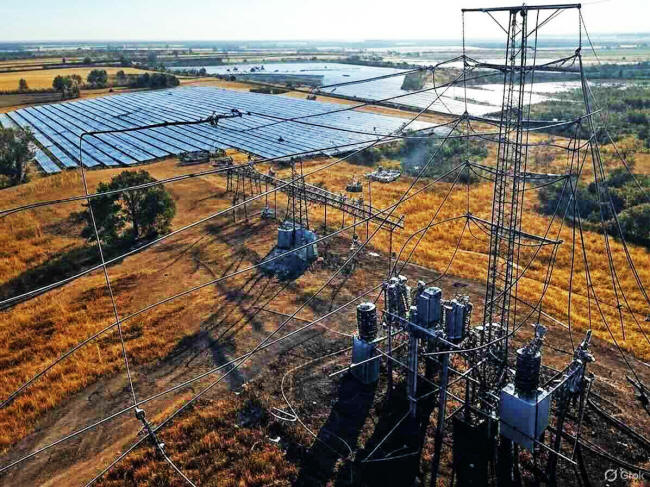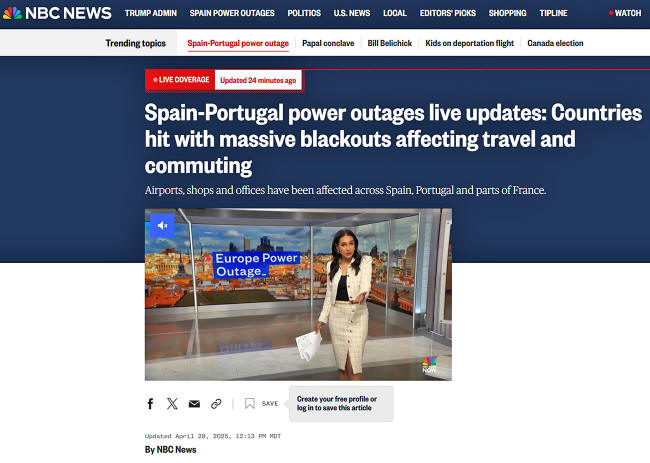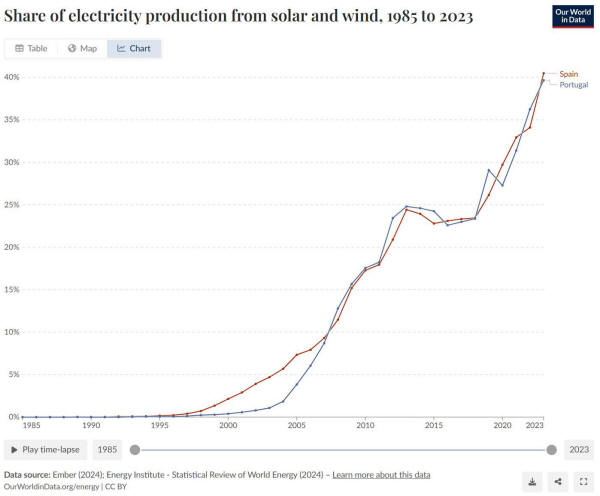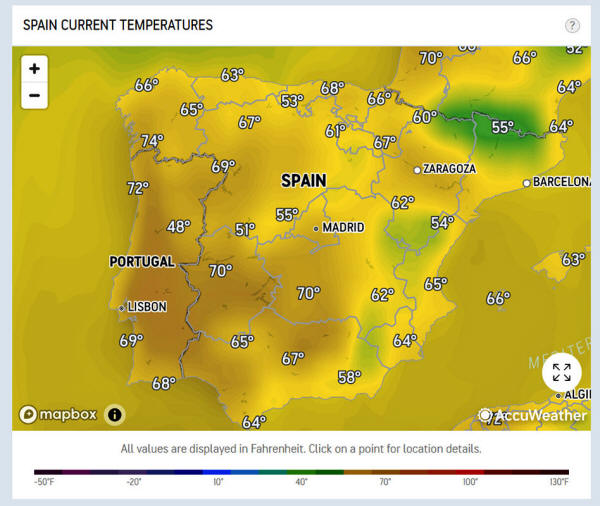|

by Dr. Matthew Wielicki
April 28, 2025
from
IrrationalFear Website

Renewables
The power outage
exposed
renewable energy
instability
and grid failure
in this
'green'
utopia...
On April 28, 2025, a catastrophic power outage plunged millions of
people in Spain and Portugal into chaos.
The blackout, one of Europe's largest in recent
memory, struck shortly after midday, instantly severing electricity
supplies and disrupting transportation, healthcare, and
communication across the Iberian Peninsula.
Traffic lights went dark, nearly 400 flights at
Madrid's airport were delayed or canceled, and hospitals scrambled
to keep emergency systems running.
Spain's national railway, Renfe, halted
entirely, leaving passengers stranded for hours.

Source
This disaster wasn't caused by extreme weather or natural
disasters, it was driven by,
a dangerously unstable reliance on
intermittent renewable energy...!
Ironically, Spain and Portugal have
championed renewable sources more aggressively than most nations.
In 2023, solar and wind produced
approximately 40% of Spain's and Portugal's power generation...

Source
Yet, this green utopia turned into a nightmare as
renewable energy unpredictability was starkly exposed.
Renewables - Clean, But Unreliable
Renewable energy sources, primarily
wind and
solar, are inherently intermittent
- depending heavily on weather conditions.
Spain and Portugal's grids struggled under
fluctuating conditions, where even slight disruptions can
cascade into catastrophic failures.
During the outage, a significant oscillation
destabilized the electrical frequency, triggering automatic
shutdowns across the grid.
(Financial
Times)
Authorities suggested that rising midday
temperatures may have stressed the grid, but today's
AccuWeather forecast for Spain
shows otherwise.
Temperatures across the interior remain moderate,
ranging from the mid-50s to the low 70s Fahrenheit, hardly extreme
conditions that could credibly destabilize a robust energy system.

Source
This calls into question official explanations and highlights how
brittle a heavily renewable-powered grid can be... even in ordinary
weather.
While renewables have undeniable environmental benefits, their
unstable nature requires robust grid infrastructure, significant
backup power sources, and extensive storage solutions, none of which
were sufficiently in place.
Limited interconnection capacity with neighboring
countries further exacerbated the situation, preventing Spain and
Portugal from effectively drawing power from elsewhere during the
crisis.
And how rare are such blackouts really?
According to
The Independent, power
disruptions of this scale are extremely rare for advanced
nations like Spain and Portugal... but as reliance on unstable
energy sources increases, we may see more of them.
How many lives might be lost or severely impacted due to this
power outage?
Hospitals running on backup generators,
emergency services slowed or stalled, vulnerable populations
stranded without essential medical equipment, these consequences
far surpass the hypothetical threats posed by climate change
itself.
The Dark Side of Renewable Energy
Behind the headlines of Spain and Portugal's massive blackout lies
an uncomfortable truth:
the transition to renewable energy, driven by
alarmist climate policies, is creating vulnerabilities that
directly threaten human lives.
The outage was triggered by a dramatic drop of
more than 10 GW in electricity supply, linked directly to the
unpredictable nature of renewables.
Wind speeds fluctuated significantly on April 28,
dropping generation capacity sharply just as demand surged midday.
Unlike coal, gas, or nuclear plants, which
reliably supply power irrespective of weather, renewable sources
faltered exactly when they were most needed.
Spain's grid operator, Red Eléctrica, acknowledged that
limited interconnections and insufficient battery storage severely
hampered emergency responses.
With a mere 5% interconnection capacity compared
to the recommended 15%, Spain and Portugal were isolated precisely
when stability mattered most.
Detailed analysis reveals this blackout wasn't an isolated
incident... it's a predictable consequence of hastily transitioning
away from stable, fossil-based sources without adequate planning or
infrastructure investment.
Studies consistently show that power outages
significantly increase mortality rates, especially among vulnerable
groups.
According to public health officials, prolonged
outages correlate with heightened death rates from medical device
failures, extreme heat or cold exposure, and interruptions in
essential medical services.
Ironically,
climate change, has never directly caused
such widespread and immediate life-threatening outages.
Yet the "solutions" policymakers advocate,
rapid renewable expansion without proper safeguards, are now
demonstrably dangerous.
Spain and Portugal's blackout must serve as a
wake-up call.
Renewables alone cannot sustain modern
societies.
Balanced, realistic energy policies, embracing
stable energy sources alongside renewables, are crucial.
Without this realism, we risk further blackouts,
more lives lost, and an ironically devastating outcome from policies
intended to "save" us.
|





